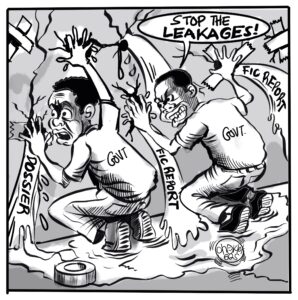FUEL prices in Zambia will not be reduced despite falling oil prices on the international market because the kwacha’s rapid depreciation against major currency convertibles has negated any potential reduction, says the Energy Regulation Board (ERB).
Brent Crude Oil prices on the international market have dropped to a five-year low to reach US $20.37 per barrel by Wednesday, compared to US $70 by the end of last year.
In a statement, Thursday, ERB public relations manager Kwali Mfuni, however, stated that the regulator would not cut fuel prices, locally, on account of the kwacha’s lost value.
The ERB hiked fuel pump prices to an unprecedented K17.62 per litre of petrol effective, Friday, December 27, 2019, when the kwacha was around K14 per dollar.
Currently, the kwacha’s trading at an average K18.45 per dollar.
“…As prices are reviewed for every cargo, on average every sixty days, the March, 2020, price preview that was conducted on a cargo procured in January, 2020, when the international oil prices had not yet started to experience a downward trend, and the kwacha had started to depreciate steeply, did yield minor price variations. However, due to the projected extreme volatility in the two fundamentals at the time and also considering that the changes would have been below the 2.5 per cent trigger band for price adjustment, it was prudent to maintain the prices,” Mfuni stated.
“The ERB has determined that the current gains from the sustained reduction in international oil prices have been negated by the depreciation of the kwacha during the same period, resulting in there being no price changes made since the last review in December, 2019. Since the last adjustment on December 26, 2019, international oil prices have dropped from around US $69 to below US $30 per barrel, while the exchange rate of the kwacha against the US dollar has risen from K14.40 to about K18.66. The ERB has particularly been monitoring movements in international oil prices vis-a-vis performance of the kwacha against the US dollar because the two are the major factors that directly impact local fuel prices.”
She added that a 12-month analysis of the oil price drop coincided with a correspondingly sharp kwacha depreciation, further illustrating why fuel prices cannot be cut, locally.
“Over the last 12 months, international crude oil prices have been decreasing on the global market by over 50 per cent between April, 2019, and April, 2020. The decrease is largely attributable to the collapse of the OPEC Agreement; market share wrangles between Saudi Arabia and Russia and the drop in global oil demand in the wake of the global COVID-19 pandemic and subsequent lockdowns in different countries. During the same period, April, 2019, to April, 2020, the kwacha, on the other hand, has been constantly depreciating against the US dollar by as much as 50 per cent,” stated Mfuni.
“Notably, a steeper depreciation was recorded in the first four months of 2020 when the kwacha depreciated by K4.22 from K14.44/US $ in January, 2020, to K18.66/US $ in April, 2020. As can be seen from the trends, the two key fundamentals that impact local pump prices have been moving in opposite directions, thereby, cancelling out the gains that would have translated into reduced local pump prices over time. It should also be noted that, unlike other countries, Zambia’s fuel needs are met through the importation of commingled feedstock, a mixture of crude oil, finished products and other components on one hand, and refined petroleum products, such as petrol and diesel on the other.”
























